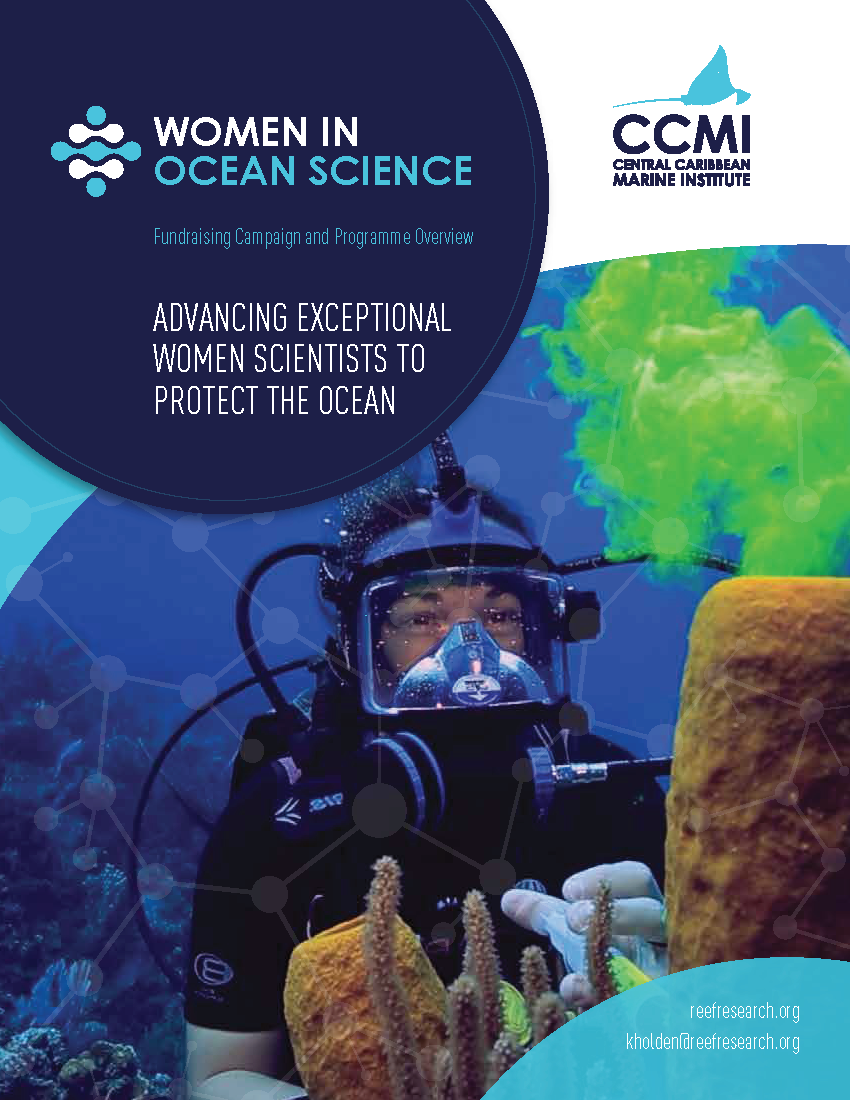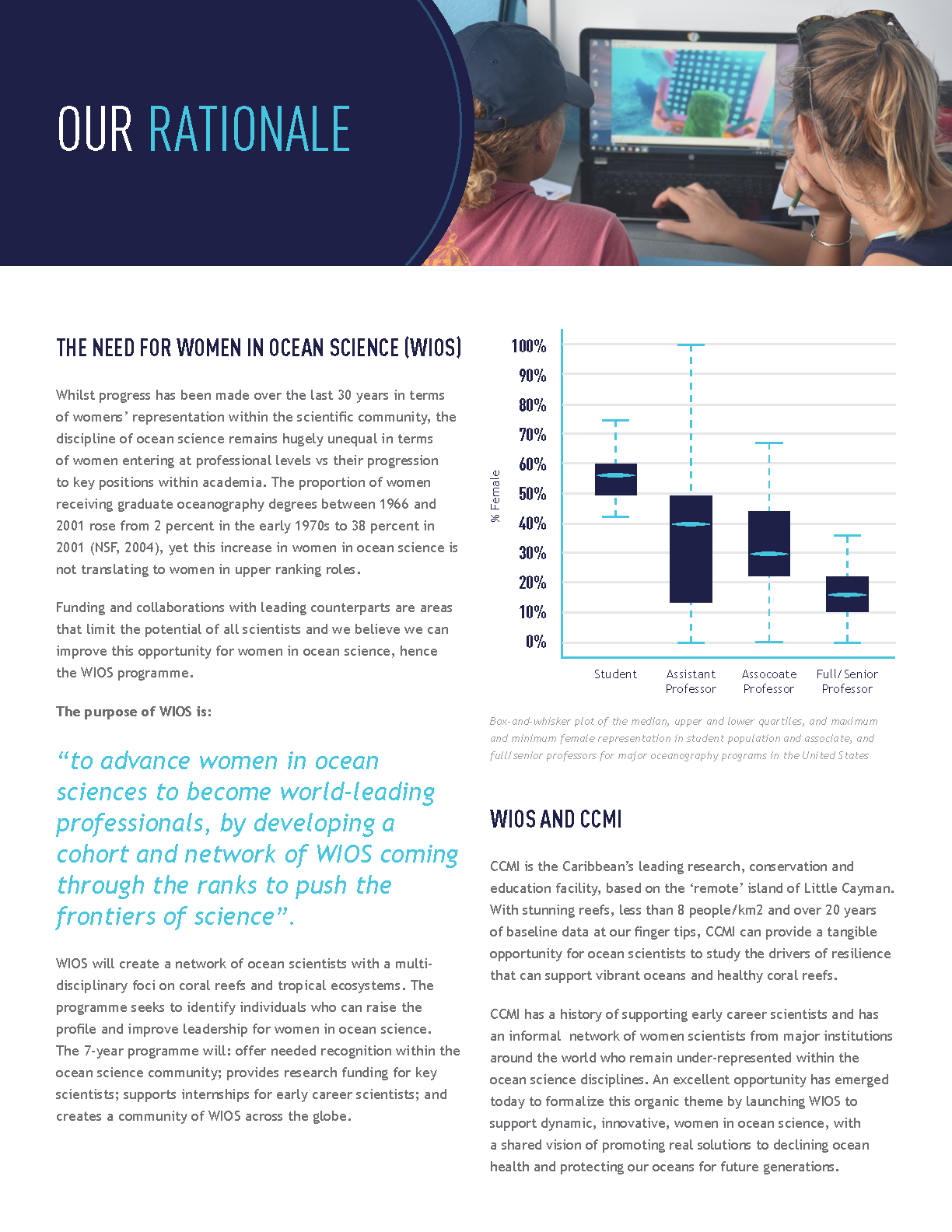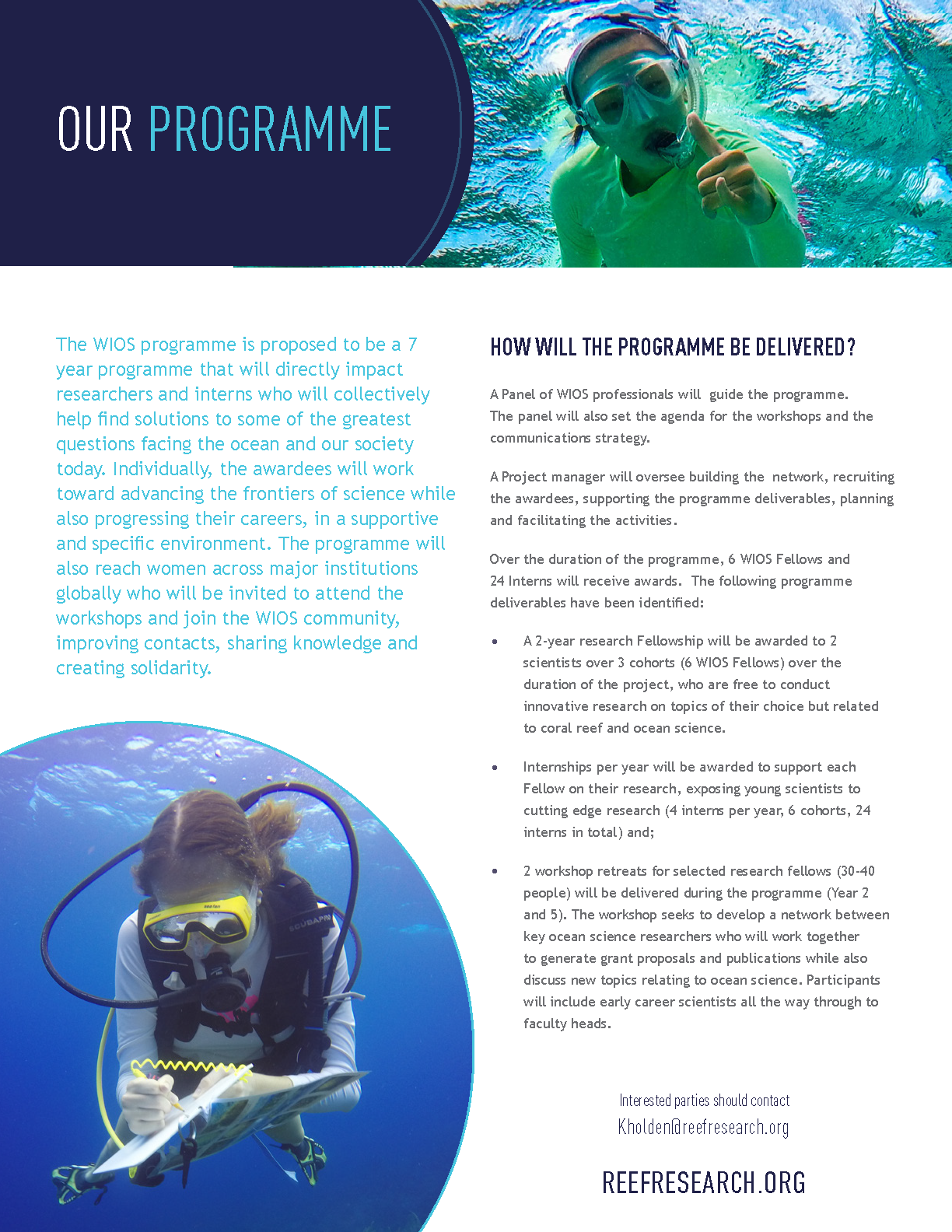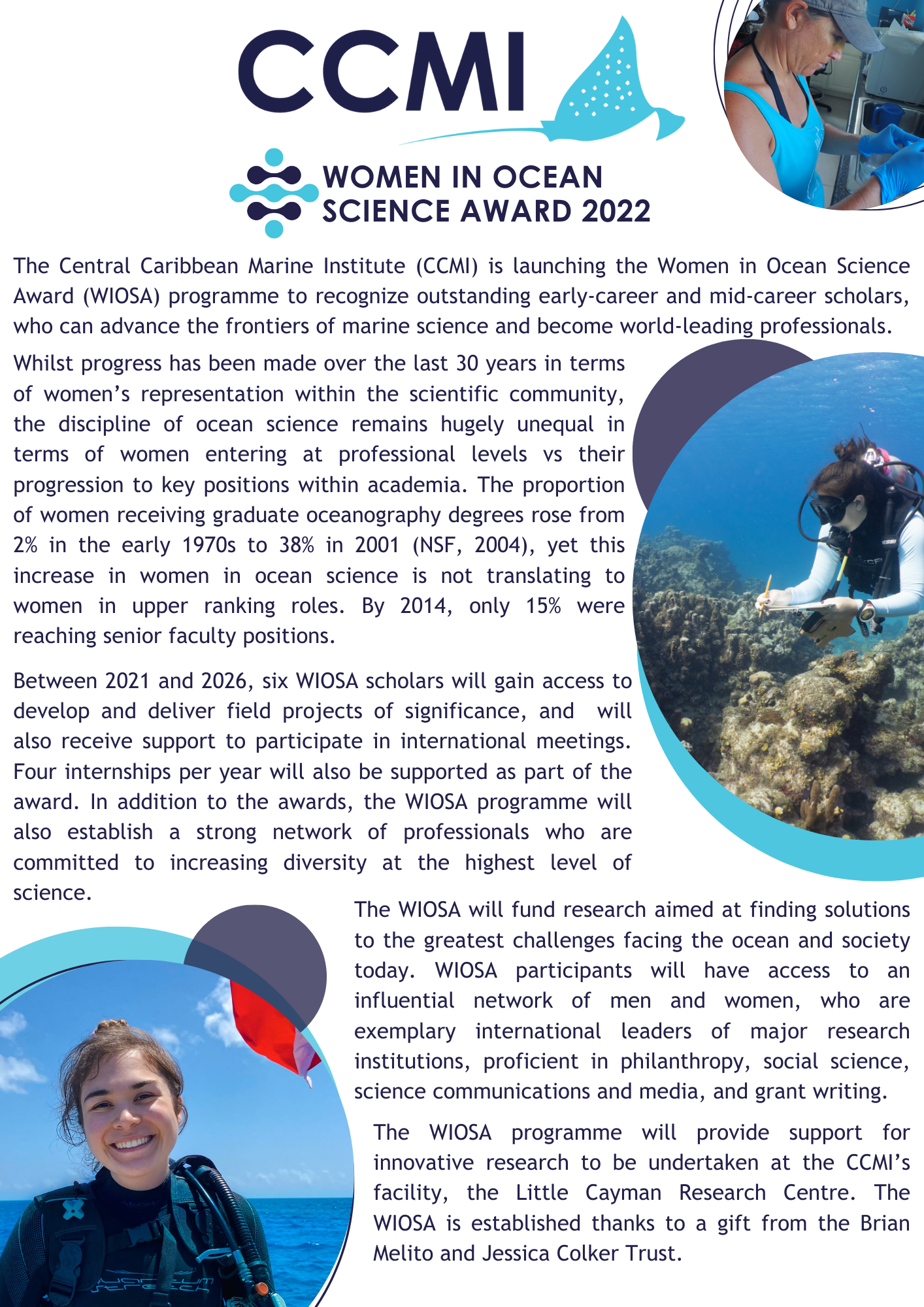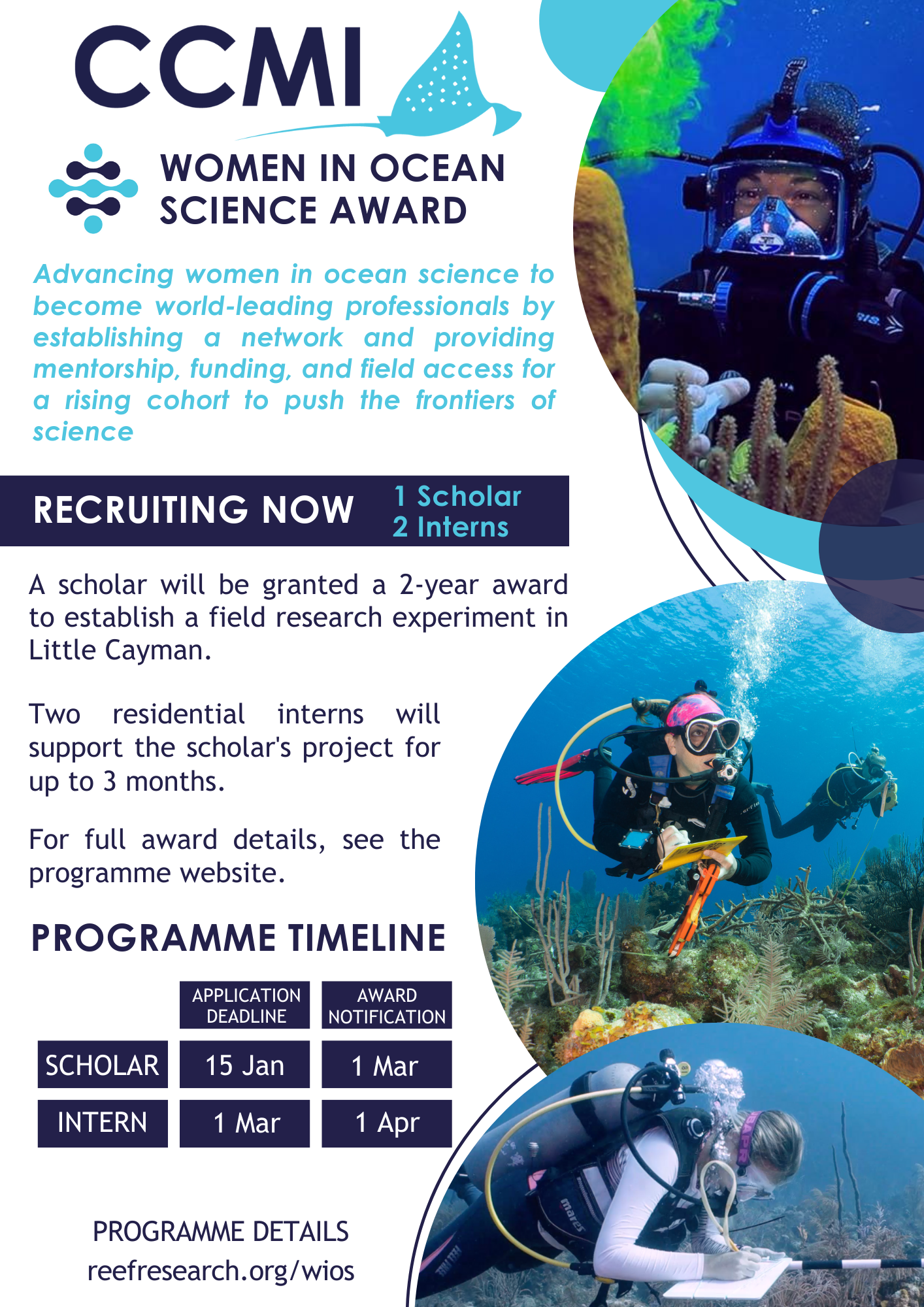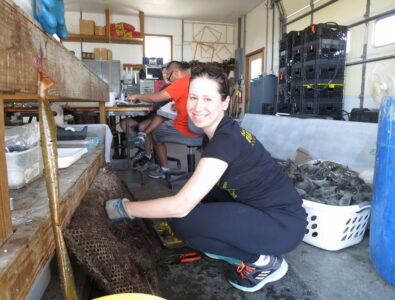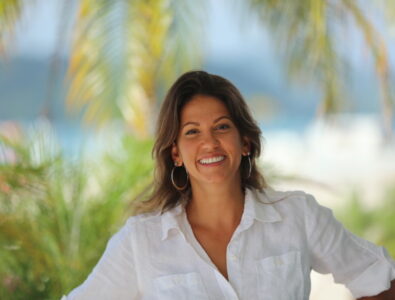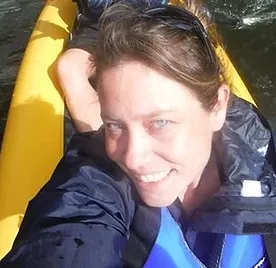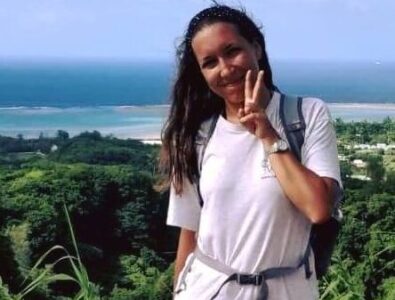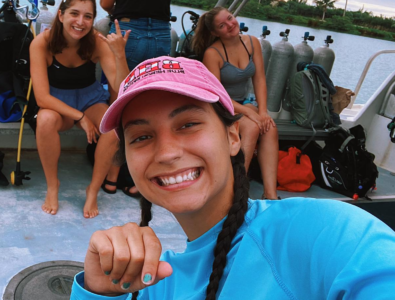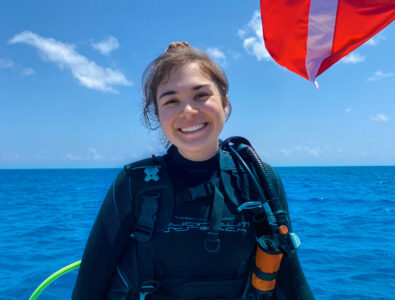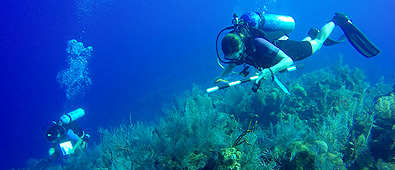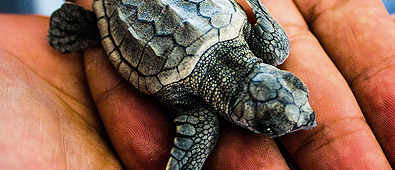Women In Ocean Science Award
Diversity in Science: The Need for Women in Ocean Science
Whilst progress has been made over the last 30 years in terms of women’s representation within the scientific community, the discipline of ocean science remains hugely unequal in terms of women entering at professional levels vs their progression to key positions within academia, government and industry. The proportion of women receiving graduate oceanography degrees in the United States rose from 2% in the early 1970s to 38% in 2001 (NSF, 2004), yet this increase in women in ocean science is not translating to women in upper ranking roles. By 2014, only 15% were reaching senior faculty positions. The American Geophysical Union is the largest union in the world for ocean sciences with over 60,000 members and since 2000, women memberships have doubled increasing to 30%. However, women represent only 17% of Union Prizes, while men are receiving 83% of these prestigious awards. In the June 6, 2019 Issue of the American Geophysical Union Newsletter, EOS, an article “Women in Oceanography still Navigating Rough Seas” highlights some of the current issues.
As a leading Caribbean marine research institution, the Central Caribbean Marine Institute has an exceptional opportunity to advance the careers of leading early-career and mid-career ocean scientists by providing mentorships and field access for experimental research.
The purpose of the Women In Ocean Science Award (WIOSA) programme is:
advancement of women in ocean sciences so they become world-leading professionals by establishing a network and providing mentorship, funding, and field access for a cohort of women in ocean science coming through the ranks to push the frontiers of science,
enacted by granting 2 scholar awards and 4 intern awards per year for 6 years.
WIOSA Brochure
Programme Objective
The WIOSA will create a network of professionals (men and women) to support a generation of leading women ocean scientists who want to work on topics related to coral reefs and tropical ecosystems. The programme seeks to identify individuals who will raise the profile and improve leadership for women in ocean science. The programme will offer recognition of the WIOSA recipients within the ocean science community; provide funding, facilities and collaboration for their research; support internships for early career scientists; and create a community of WIOSA alumni.
The WIOSA programme will directly impact researchers and interns who will collectively help find solutions to some of the greatest questions facing the ocean and our society today. Individually, the awardees will work toward advancing the frontiers of science while also progressing their careers, in a supportive and specific environment. The overall programme intends to reach women across major institutions who will be invited to join the WIOSA community who will help them network, provide mentorship, share knowledge, and create lasting solidarity.
The Women in Ocean Science Award is established thanks to the Brian Melito and Jessica Colker Trust.
Founding Advisors
WIOSA Scholars
WIOSA Interns
Award & Application Overview
This programme began in 2020 and will support 6 scholars and 24 interns over a 6-year period.
WIOSA Scholar Details
The first WIOSA Scholar was identified March 2020. CCMI is currently recruiting for the second WIOSA scholar. The WIOSA Scholar will have full resources to establish a new field research experiment on the topic of coral reef/ocean resiliency over a two-year period, based at the Little Cayman Research Centre. A $10,000 USD financial fellowship award will be granted to the scholar, per annum. A further $10,000 USD per annum will be awarded to support a full month of field research activity (diving, boat, transportation, room and board, equipment) at the Little Cayman Research Station as well as participation in a relevant international scientific conference. A field budget must be submitted for approval by 15 April. The scholar will have the ability to select their interns (see below), via a fair and transparent process.
The WIOSA Scholar has the opportunity to promote a project via their own organization and/or may work in conjunction with an already running project at CCMI.
WIOSA Intern Details
Two residential internships of up to 3-month terms will be awarded. Each intern receives a $500 USD per month stipend, plus full room and board. The scholar will oversee the fieldwork and project deliverables.
For additional cohort information, please see the programme dates (right).
Upcoming Programme Dates
November 1, 2021 – January 15, 2022: Recruitment for second WIOSA scholar
January 1 – March 1, 2022: Recruitment for WIOSA intern
January 15, 2022: Scholar application deadline
March 15, 2022: Scholar announced
April 1, 2022: Intern announced
June 2022: Anticipated date WIOSA fieldwork begins
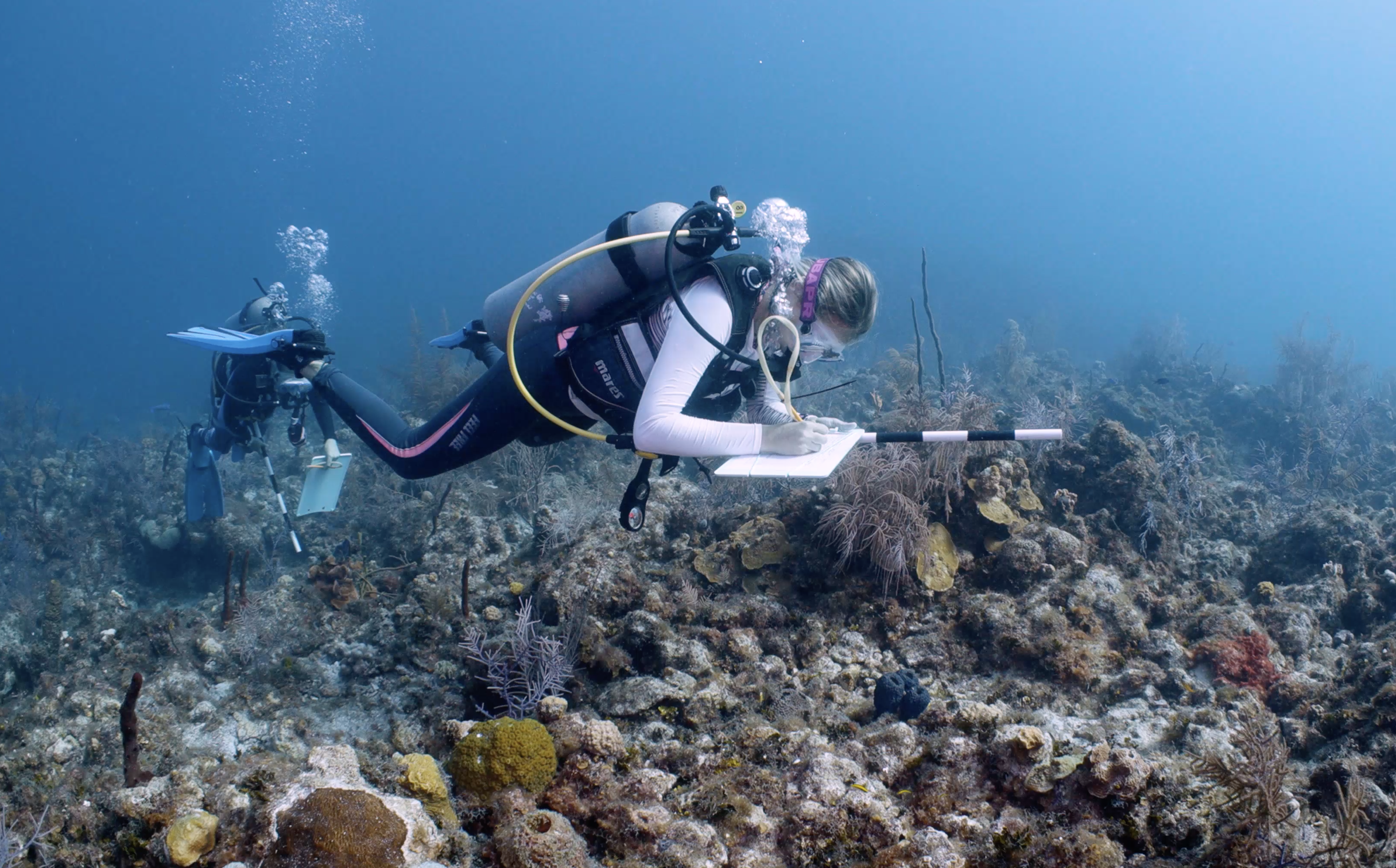
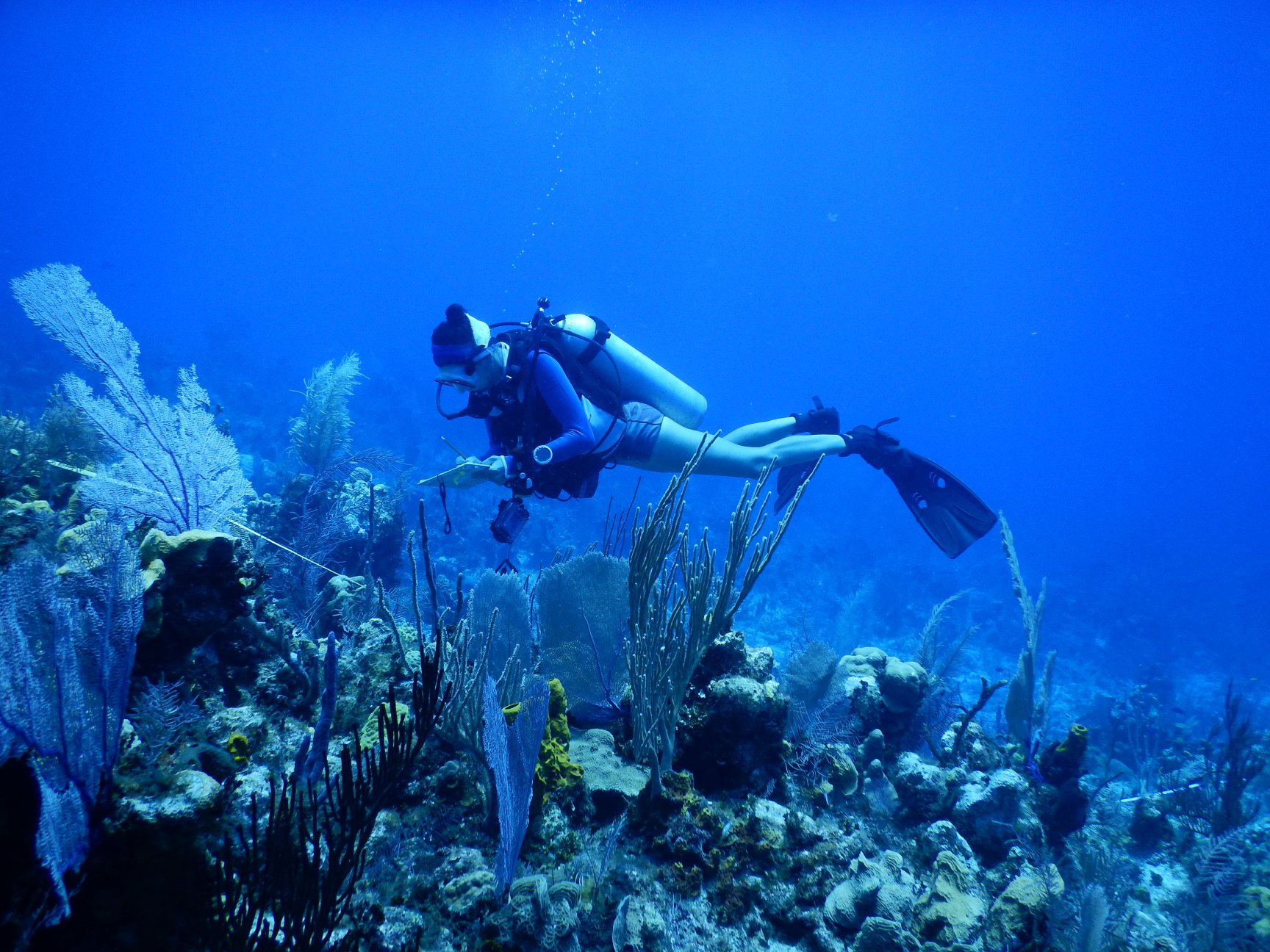
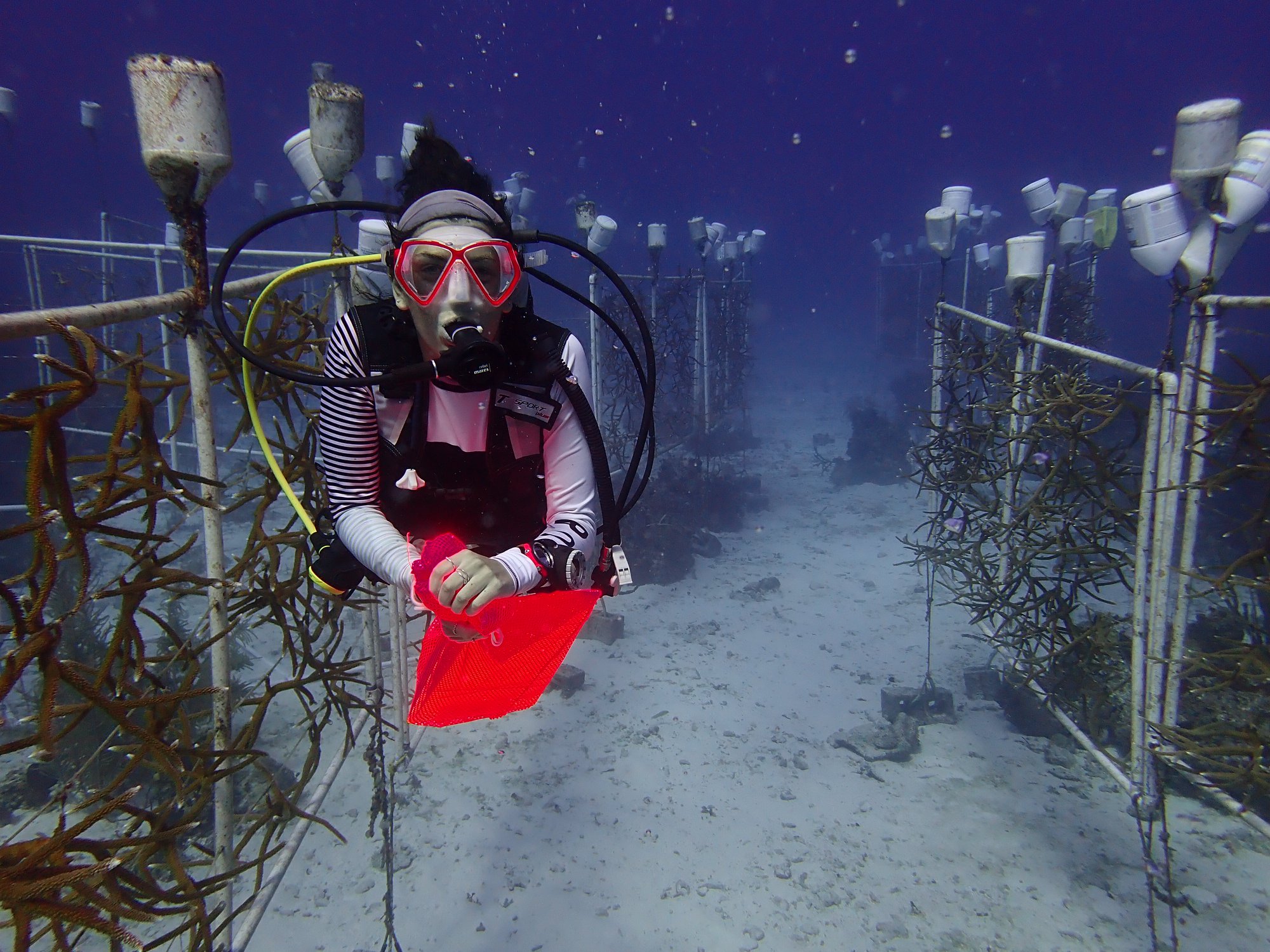
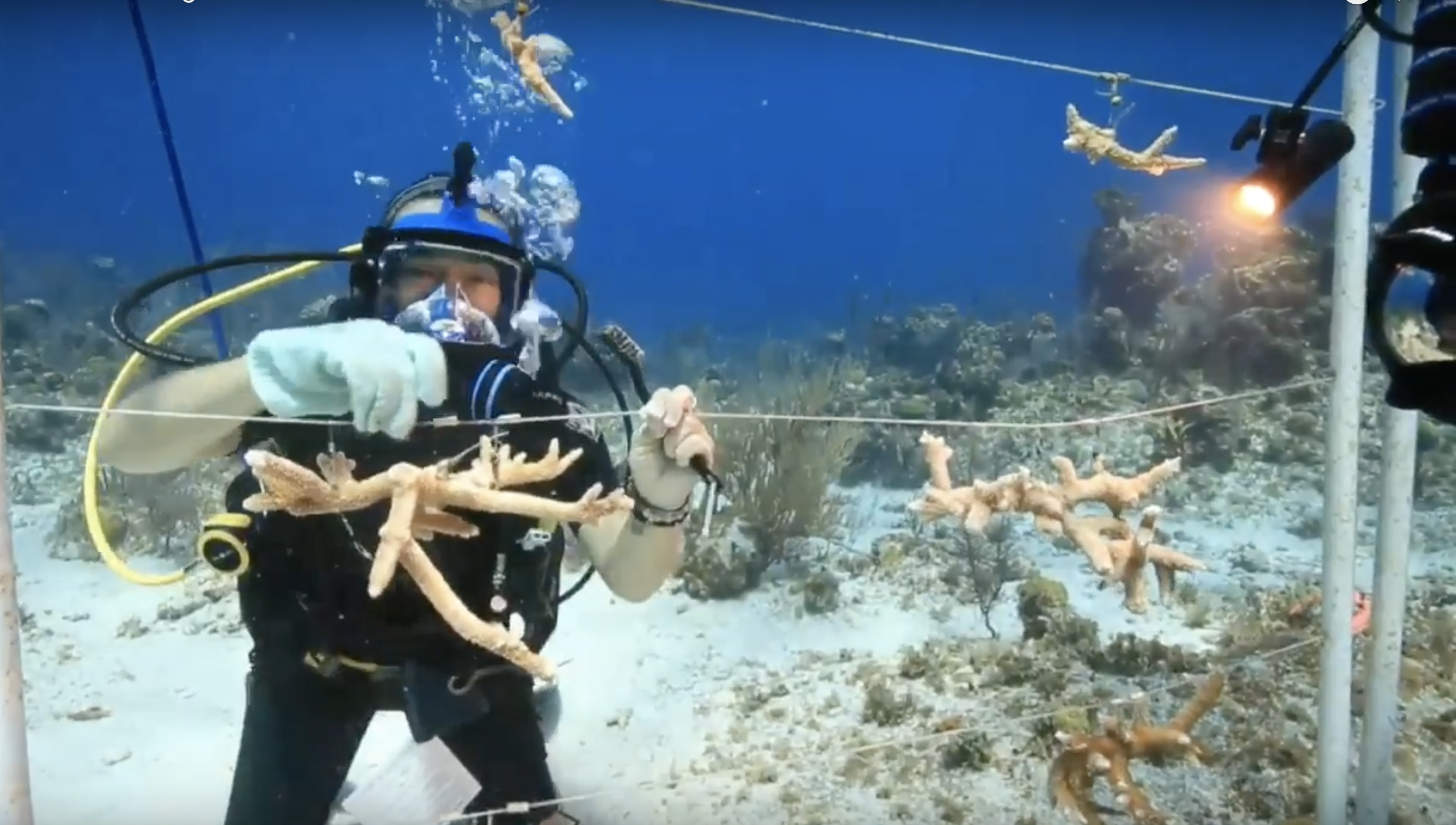
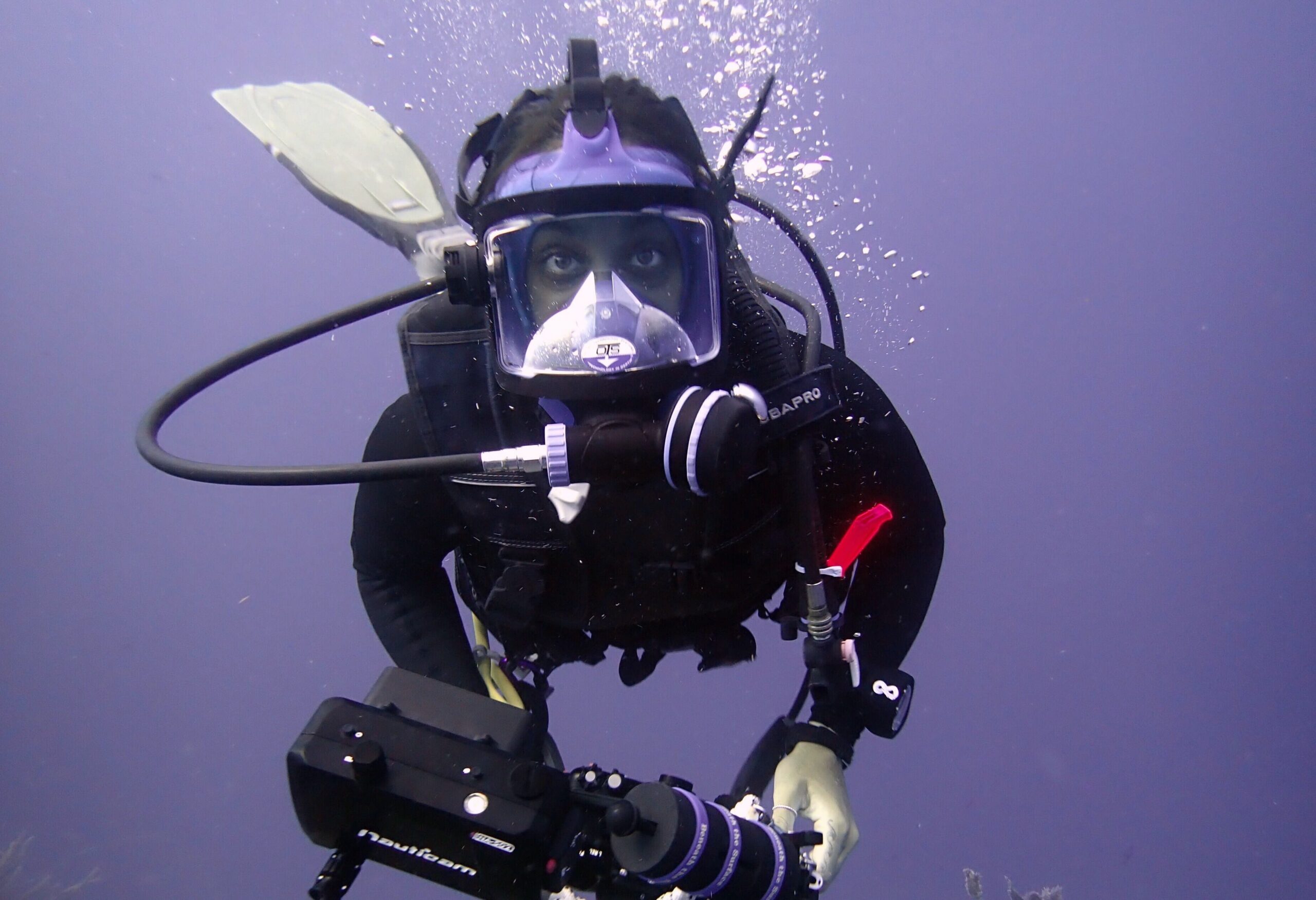
Scholar Applicant Eligibility
Early-career and mid-career women who have received their PhD within 10 years of the deadline for the award are eligible. Applicants must have a current position as an ocean or marine scientist with an excellent research and publication record in the marine sciences. The individual should be able to establish a research programme in the Caribbean.
Scholar Application Requirements
Candidate should compile the following documents to submit one PDF document as application:
- Application statement indicating how the award can advance your career (no more than two pages in length), you may wish to speak about special challenges that have led to your interests and career choice/your own ideas about diversity in the ocean sciences
- CV no more than two pages in length;
- Proposed research objectives (three pages maximum); and
- Complete list of publications with links.
These documents are to be submitted by email as a single PDF to [email protected] no later than 15 January, 2022.
The candidate must also seek three letters of support. These letters are a required component of the application and must be submitted directly by the referees to the above email address, within the application deadline.
Scholar Application Deadline
15 January 2022
Intern Applicant Eligibility
Early-career women with a bachelor’s or master’s degree in marine science or a related field and scuba certification (preferably rescue level or higher) are eligible to apply. Strong candidates will have experience in field research, reef surveys, GIS mapping, photo and video interpretation, maintaining and calibrating instruments, or other uniquely qualifying skills.
Intern Application Requirements
Candidate should compile the following documents to submit one PDF document as application:
- Application statement indicating how the award can advance your career (no more than one page in length), you may wish to speak about special challenges that have led to your interests and career choice/your own ideas about diversity in the ocean sciences, and
- CV no more than two pages in length, inclusive of any publications.
The candidate must also seek two letters of support. These letters are a required component of the application and must be submitted directly by the referees to the above email address, within the application deadline.
Intern Application Deadline
1 March 2022
Programme Funding
WIOSA is a 6-year programme, that aims to support 6 scholars and 24 interns undertaking innovative research at CCMI’s Little Cayman Research Centre. The first award is established thanks to a gift from the Brian Melito and Jessica Colker Trust. Funding to support a further 5 scholars and 20 interns is currently needed. Please contact [email protected] for more details.
- Is there a separate nomination process required?
No, you can simply apply directly for both the scholarship award and the internships. View the above Application Requirements section for details.
- What is the deadline?
Receipt of your nominations must be received by midnight Eastern standard time of the date indicated in the “Upcoming Programme Dates” section.
- What should the application letter include?
This should be a letter that describes the importance of the applicant’s contributions and the impact she has already had on her field. It should describe why the work is potentially transformative, whether it has provided new insights and what the future work might lead to. We are interested in understanding the history of your work and the publications that have resulted.
- What can the scholar use the funds for?
The award for field research provides $10,000 (USD) to support travel to the field, equipment and supplies needed for field work, and travel to one scientific meeting each year. A $10,000 USD financial fellowship award will be granted to the scholar, per annum.
- What other costs are covered?
Scholar field costs including room and board, boat rentals and fuel, use of wet labs, and vehicles can be scheduled for up to one month each year of the two-year award. A total maximum budget will be established at the beginning of your project. Interns will be available to assist you with monitoring an experiment in the field for up to 3 months per annum and their field costs will be covered as above. You are required to work in the field each season and are also required to present preliminary results within 12 months of your field work at a major conference, such as the European Geophysical Union.
- How is the WIOSA Scholar selected?
Each year, a WIOSA Council will review applications and the applicants’ contributions to ocean science. The selection committee deliberates the nominees potential for advancing ocean science and will vote on the recipient after all applicants are discussed. The awardees will be chosen by receiving a majority of the panel’s votes.
- Are there other considerations for the application?
Applications should be concise and include only the information required by the award as outlined above in the Application Requirements section. Applications will be excluded if they are incomplete, exceed the page limits, or are submitted incorrectly.

